NIL
Transfer portal or 'speed dating'? How Alabama baseball flipped 2025 roster with 13 additions
Some of Alabama baseball‘s biggest contributors during the 2025 season were plucked straight from the transfer portal. “The scary part of the transfer portal is you can crush your culture really quick if you start bringing the wrong people in,” Crimson Tide coach Rob Vaughn told the Tuscaloosa News. Vaughn admits his recruiting process is […]
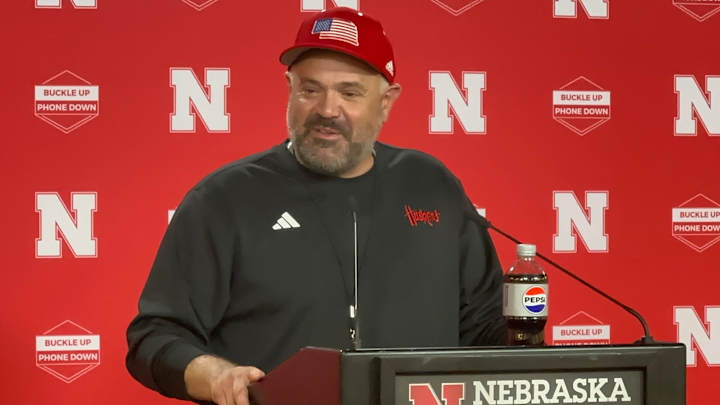
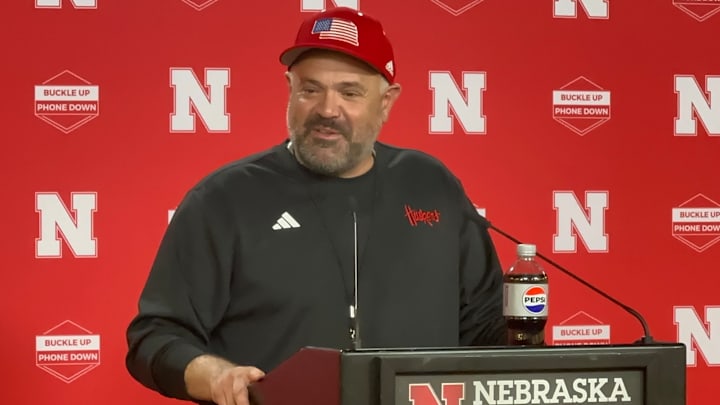

Some of Alabama baseball‘s biggest contributors during the 2025 season were plucked straight from the transfer portal.
“The scary part of the transfer portal is you can crush your culture really quick if you start bringing the wrong people in,” Crimson Tide coach Rob Vaughn told the Tuscaloosa News.
Vaughn admits his recruiting process is “probably a little bit slower than most,” but it’s a decision made on good advice. Former St. John’s manager Ed Blankmeyer once told Vaughn and his assistants:
“It’s never the guy you don’t get, it’s the guy you get that you shouldn’t have got.”
Who’s the best competitor? Which guys are tough, and know the difference between toughness and grit? Vaughn wants those guys.
“The truest competitors for me are the ones that say, ‘Hey, whatever I’ve got today is good enough to beat you. I don’t have to have my A stuff. I’m good enough to beat you with my C stuff,’ ” Vaughn said.
Without that mentality, Vaughn says there’s “no chance” to survive in the SEC.
Why Alabama baseball coach Rob Vaughn thinks the transfer portal is like ‘speed dating’
Recruiting high schools is easier for Vaughn, who likes having the extra time to do the homework compared to shopping for transfers.
“The portal is like speed dating,” Vaughn said. “There’s times kids get in the portal. We talk to him. Two hours later, they’ve already got five offers and six visits lined up. We have to operate in it. If you don’t, you’re gonna get passed.”
Alabama was a hot date to swipe right on last portal season, as thirteen players on the current roster chose to leave programs around the country, whether little-known community colleges or iconic Ivy Leagues, and join the Crimson Tide.
![Alabama's outfielder Richie Bonomolo Jr. (5) celebrates his two run homer in the top of the first inning against Florida. Florida came back from being down 5-0 to beat Alabama 7-6, Friday, May 15, 2025, at Condron Family Ballpark in Gainesville, Florida. [Cyndi Chambers/ Gainesville Sun] 2025](/gcdn/authoring/authoring-images/2025/05/17/STID/83700884007-usatsi-26210251.jpg?width=660&height=521&fit=crop&format=pjpg&auto=webp)
Which Alabama baseball transfers will make their first trips to the SEC Tournament?
Richie Bonomolo Jr., CF, junior
Previous school: Wabash Valley College
Before Alabama, Bonomolo helped Wabash Valley advance to its fourth consecutive JUCO World Series in 2023 and earned second-team All-American honors after a standout freshman season.
Bryce Fowler, RF, redshirt junior
Previous school: Pearl River C.C. (2024), Southern Miss (2022-23)
In Poplarville, Miss. at Pearl River, Fowler got comfortable as a leadoff hitter and worked himself among the all-time leaders with 88 hits, the second most in a season in program history.
JT Blackwood, RHP, junior
Previous school: Wallace State
When Blackwood wasn’t getting called out of the bullpen, he was often the midweek starter for the Crimson Tide, which went undefeated in the midweek during the 2025 regular season. In two seasons at Wallace State, he had the most innings pitched.
Carson Ozmer, RHP, graduate
Previous school: Penn
Ozmer leads all Division I closers with 16 saves, picking up two in one day in the series finale double-header against Georgia. All four years he was at Penn, Ozmer was a two-way starter and earned honorable mention All-Ivy League honors twice.
Aeden Finateri, RHP, senior
Previous school: Georgia Tech
Finateri came to Tuscaloosa after three seasons at Georgia Tech, where he appeared in 58 games and made 23 starts, finishing his career with an 8-9 record with three saves and 172 strikeouts
Brennen Norton, INF, senior
Previous school: Jacksonville State
Norton left Jacksonville State on a high note. As a junior, he achieved a career-best .327 average with 13 home runs and 44 RBIs, seeing him add First Team All-Conference USA honors to his resume.
Garrett Staton, DH/2B, redshirt senior
Previous school: Samford
Staton missed 21 games after suffering a broken finger on Feb. 18 when he was hit by a pitch, putting a delay on Crimson Tide fans seeing all the reasons why he earned preseason All-American honors. Since returning to the lineup on March 25, Staton has lived up to the hype, recording at least one RBI in 13 of his 25 starts.
Jason Torres, 3B, junior
Previous school: Miami
Named to the Golden Spikes Award Midseason Watch List, Torres impressed during his stint in South Florida. At Alabama, he’s started all but one game on the hot corner and is one of the Crimson Tide’s top home run contributors.
More first-timers that joined Alabama’s 2025 roster from the portal
- Beau Bryans, LHP, junior: previously Jones College
- Packy Bradley-Cooney, RHP, senior: previously Campbell (2024), CCBC Essex (2022-23)
- Danny Heintz, RHP, redshirt senior: previously Penn
- Zach Kittrell, RHP, junior: previously Pensacola State College
Which new SEC transfer returns to Hoover, but with the Tide instead?
Brady Neal, C, junior
Previous school: LSU
Sidelined by a back injury, Neal’s career as LSU’s starting catcher hit a roadbump in 2023. Now, he splits time behind the plate with fellow SEC transfer Will Plattner. The nine-hole hitter, Neal leads Alabama with an 18.4% walk rate.
Emilee Smarr covers Alabama basketball and Crimson Tide athletics for the Tuscaloosa News. She can be reached via email at esmarr@gannett.com.
NIL
Joe Castiglione reveals how much his job changed with transfer portal, NIL
When Joe Castiglione was hired at Oklahoma at athletic director in 1998, there was no way for him to predict how much the NCAA landscape would change during what will end up being a three-decade tenure in Norman. Particularly, in the last decade of his tenure with the implementation of NIL and the NCAA transfer […]

When Joe Castiglione was hired at Oklahoma at athletic director in 1998, there was no way for him to predict how much the NCAA landscape would change during what will end up being a three-decade tenure in Norman. Particularly, in the last decade of his tenure with the implementation of NIL and the NCAA transfer portal.
Castiglione has overseen 26 of Oklahoma’s 45 total national championships, and is OU’s longest-serving AD. He positioned the Sooners for long-term success since the beginning his tenure, and it’s followed into the new era of college athletics. Under his guidance, Oklahoma seen at least one team compete for a national championship in each of the last 12 years.
“One of the most challenging parts of the period that we’re in is, there’s never been a moment like it. Not only in college athletics, I think you could look across various industries, they all go through some moment of disruption and change,” Catsiglione said. “And the ones that see the future, that adapt, pivot, be flexible, those are the ones that navigated, not only survived, but become stronger when they get on the other side.”
The Sooners have done just that, positioning themselves to be at the forefront of college athletics for years to come after aligning with the Southeastern Conference alongside Texas ahead of the 2024-25 academic calendar year. The move came just weeks after it was ruled that athletes could begin compensating from their name, image and likeness.
“We have to be uncomfortable with the uncomfortable period that we’re in, and that’s where we are,” he continued. “So if you’re not willing to lean into it, get scarred up, nicked up and try to find the solutions that are necessary in this moment in time where we’re still not structured the way we should be, … realize sometimes that you don’t have full control of everything, but you better exert as much as you can. Lean into the future and don’t be afraid to be a change agent.”
Those at the forefront of college athletics are the ones who are able to adapt to the current state of college athletics. With just under three years to find Castiglione’s successor, adaptability is likely a quality the Sooners will be looking for in their next athletic director.
“However you want to define the the skills of the next AD, you better be a leader that can lean in, accept and effectuate change of the future,” Castiglione said. “Because if the people in the business don’t do the leading, then who is?”
NIL
Powell Cracks Mid-Major Top 100 Player Rankings
Story Links Rock Hill, S.C. – D1 Softball announced its 2025 Mid-Major D100 Player Rankings and Winthrop standout Megan Powell was ranked 97th. Powell adds more recognition to a season that saw her voted as the 2025 Big South Conference Player of the Year. Powell was also an All-Big […]
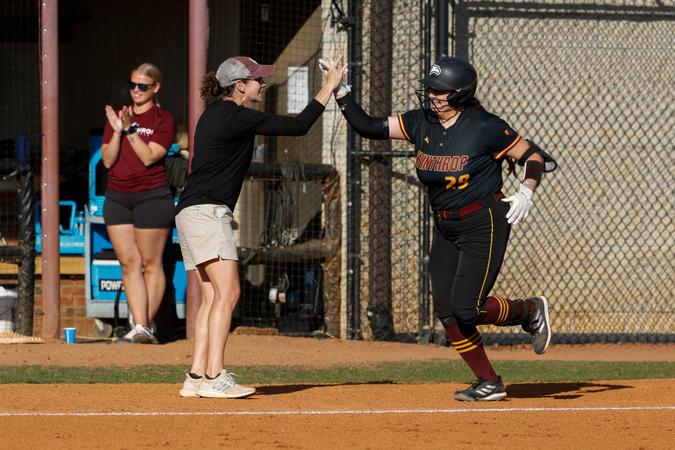
Rock Hill, S.C. – D1 Softball announced its 2025 Mid-Major D100 Player Rankings and Winthrop standout Megan Powell was ranked 97th.
Powell adds more recognition to a season that saw her voted as the 2025 Big South Conference Player of the Year. Powell was also an All-Big South First Team selection, NFCA All-Region Selection and was named to the Big South All-Tournament Team. She also earned academic recognition as she was named to the College Sports Communicators Academic All-District Team.
This year she led the team with a .333 average to go along with 27 runs, seven doubles, 10 home runs, 35 RBI, 22 walks and an on-base percentage of .425. In the circle she was 16-12 with a 2.15 ERA, 16 complete games, five shutouts and 122 strikeouts in 163 innings. She also held an opposing batting average of .206.
Powell was 1-of-2 Big South Conference players recognized, joining Radford’s Dakota Redmon on the list.
The Top 100 rankings list can be found here.
STAY SOCIAL WITH THE EAGLES
For everything Winthrop softball visit www.winthropeagles.com or follow us on social media @Winthropsoftbal, winthropsoftball (Instagram) or www.facebook.com/Winthrop-Softball
NIL
House attorneys argue plan to vet NIL collective deals violates settlement
The attorneys who negotiated a $2.8 billion lawsuit settlement with the NCAA and four power conferences took issue Friday with the way college sports’ new enforcement body plans to vet name, image and likeness payments to athletes from school-affiliated collectives. In a letter to the power conferences and NCAA, obtained by The Athletic, attorneys Jeffrey […]

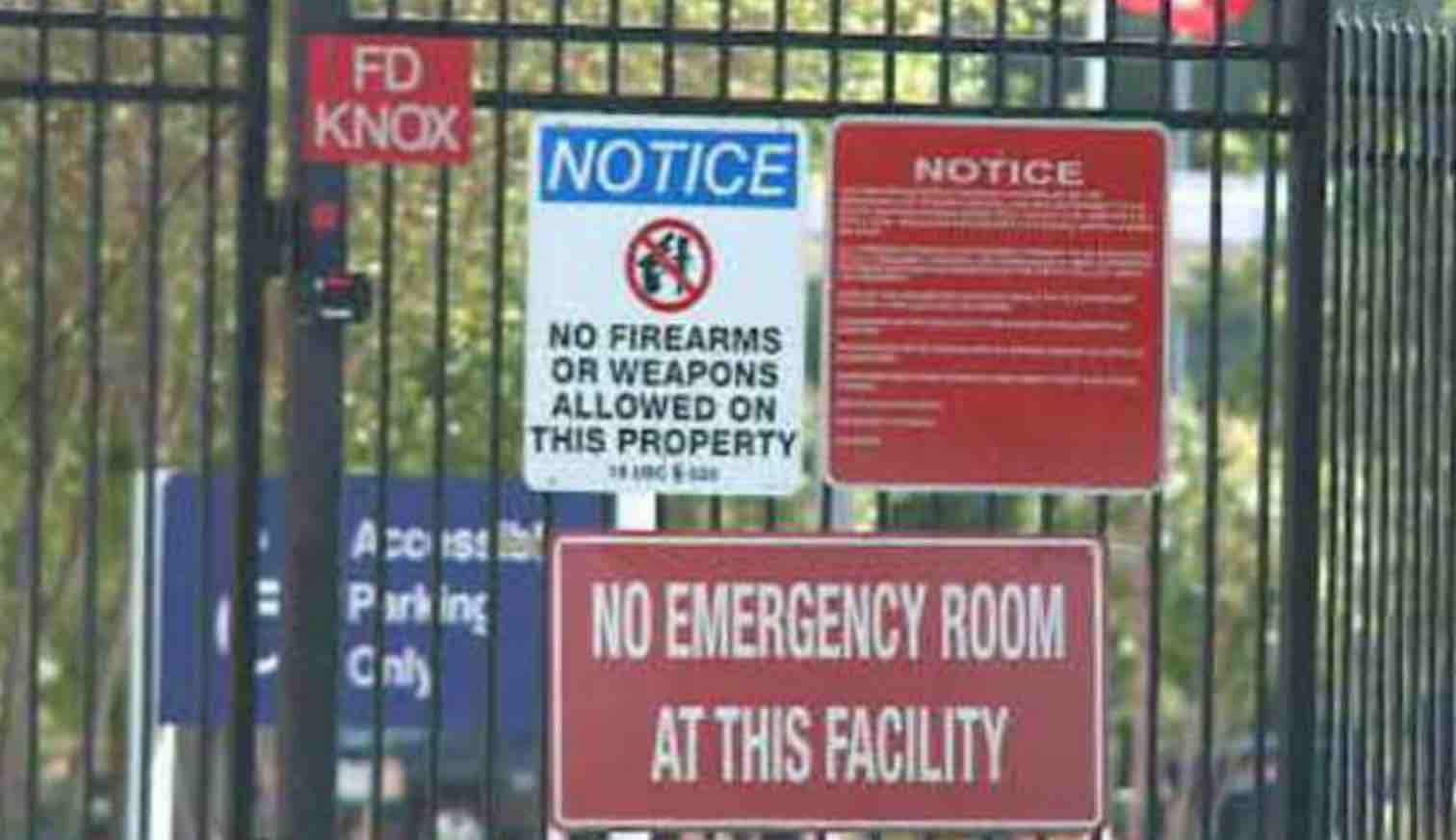

The attorneys who negotiated a $2.8 billion lawsuit settlement with the NCAA and four power conferences took issue Friday with the way college sports’ new enforcement body plans to vet name, image and likeness payments to athletes from school-affiliated collectives.
In a letter to the power conferences and NCAA, obtained by The Athletic, attorneys Jeffrey Kessler and Steve Berman stated that the guidance the College Sports Commission (CSC) issued Thursday violates the terms of the settlement and that it should treat collectives the same as any other third-party business.
Advertisement
“While we want to continue to work together to implement the Settlement Agreement in a cooperative fashion, this process is undermined when the CSC goes off the reservation and issues directions to the schools that are not consistent with the Settlement agreement terms,” the letter said.
Yahoo! Sports first reported the plaintiffs’ attorneys’ letter.
“We urge the CSC to retract the July CSC Memorandum and clarify that the valid business purpose requirement applies to NIL collectives in the same manner as any other entity,” the letter said. “If the CSC does not retract the statement, Class Counsel will have no choice but to pursue relief from the Special Master as the July CSC Memorandum is already causing injury to class members.”
Kessler declined to comment when The Athletic contacted him.
Earlier Friday, the judge overseeing the settlement approved about $750 million in fees for the NCAA and conferences to pay the plaintiffs’ attorneys.
The recently approved House settlement, which took effect on July 1, established a clearinghouse, called NIL Go, that must approve all third-party deals over $600. The two main requirements for those deals are that they’re for a “valid business purpose” and fit within a fair market “range of compensation.”
Officials created those rules to prevent schools from utilizing booster-driven entities to funnel payments to recruits and transfers as a way to work around the $20.5 million revenue-sharing cap.
“The guidance issued by the College Sports Commission yesterday is entirely consistent with the House settlement and the rules that have been agreed upon with Class Counsel. The defendants have been in close coordination with Class Counsel on the key provisions in the memo and will continue to work with them to resolve any concerns they may have,” the CSC said in a statement.
Advertisement
Officials for the Southeastern Conference, Big Ten, Big 12 and Atlantic Coast Conference established the CSC to oversee the revenue-sharing system the settlement created. Schools will be able to directly pay their athletes up to $20.5 million this year.
The NCAA has no involvement with the CSC, enforcement of rules related to the revenue-sharing system or the approval of NIL deals.
Guidance the CSC issued Thursday said “an entity with a business purpose of providing payments or benefits to student-athletes or institutions, rather than providing goods or services to the general public for profit, does not satisfy the valid business purpose requirement set forth in NCAA Rule 22.1.3.”
It then cited an example of a collective that “reach(es) a deal with a student-athlete to make an appearance on behalf of the collective at an event, even if that event is open to the general public, and the collective charges an admission fee (e.g., a golf tournament). … The same collective’s deal with a student-athlete to promote the collective’s sale of merchandise to the public would not satisfy the valid business purpose requirement for the same reason.”
“Today’s commentary from the College Sports Commission regarding ‘true NIL’ and ‘valid business purposes’ is not only misguided but deeply dismissive of the collective organizations and the tens of thousands of fans and donors who fuel them,” The Collective Association, a trade group of prominent collectives from around the country, said in a statement. “Any attempt to delegitimize the role collectives play in today’s collegiate athletics landscape ignores both legal precedent and economic reality.”
In the four years since NIL payments began in 2021, collectives affiliated with specific schools have made hundreds of millions in deals with athletes just like those the CSC described in its examples. They pool funds from donors and boosters and use them to license the NIL rights of specific athletes in exchange for appearances and social media posts.
Advertisement
“There is nothing in the Settlement Agreement to permit Defendants or the CSC, acting on their behalf, to decide that it would not be a valid business purpose for a school’s collective to engage in for-profit promotions of goods or services using paid-for student-athlete NIL,” the letter said.
(Photo: Isaiah Vazquez / Getty Images)
NIL
West Virginia’s Rich Rodriguez appreciates new revenue share ruling, doesn’t care about CFP format
MORGANTOWN — West Virginia’s Rich Rodriguez hasn’t spoken in front of the media in three months, and the rapid space of college athletics has seen massive changes in the time away from the podium. At the start of June, revenue sharing was announced, and more guardrails were applied, with a new College Sports Commissioner picked, […]

MORGANTOWN — West Virginia’s Rich Rodriguez hasn’t spoken in front of the media in three months, and the rapid space of college athletics has seen massive changes in the time away from the podium.
At the start of June, revenue sharing was announced, and more guardrails were applied, with a new College Sports Commissioner picked, in charge of regulating NIL.
With over a decade of experience, Rodriguez witnessed the change of college athletics over the years and was vocal about how there needed to be a change. Now, there have been changes made, and Rodriguez gave his opinion at Big 12 Media Days.
“A lot better guardrails than a month ago,” Rodriguez said. “I mean, it was a cluster for the last three or four years. All coaches are complaining about it, but it was just a mess, and nobody knew how to really solve it right away. And I still think we got it a lot better now with the cap and the rev share. But there’s still a lot of work to do.”
The new ruling isn’t perfect, like Rodriguez said. Paying players directly is a step forward. The College Sports Commission could be too, but there’s no telling how much jurisdiction it’ll have over passing and denying NIL deals without lawsuits. Rodriguez still doesn’t have his one transfer portal window, either, arguably his biggest issue.
There’s still work to do. Rodriguez wants athletic directors and Congress to lead the charge on shaping the future of collegiate athletics.
“Hopefully, smarter minds than myself will get that together,” Rodriguez said. “I said this earlier today, I think they need to get the college athletic directors more input and more say in how college athletics is going to be run because these are the guys and the ladies that know what’s best for the schools and what’s best for the country in college athletics.”
West Virginia’s representative is athletic director Wren Baker. Baker and WVU athletics moved quickly on the new ruling, creating a revenue-sharing company, Gold & Blue Enterprise, to generate money. Big 12 commissioner Brett Yomark said WVU was the first school to integrate Venmo and PayPal to distribute revenue-sharing money. Baker is fully committed and determined that WVU athletics has everything necessary to compete at the highest level.
Rodriguez appreciates the work Baker’s done, and is glad he’s WVU’s athletic director.
“I’ve worked for a lot of really good ADs,” Rodriguez said. “One or two, I wasn’t sure about, but most of the ones I’ve worked with have been great. Wren has as good a grasp as anyone. I’m very fortunate. We’re in good shape with Wren Baker.”
The new court ruling isn’t the only news that’s emerged since Rodriguez’s last press conference after the Gold-Blue Game. There’ve been talks about moving to a 5-plus-11 and 16-team College Football Playoff model in the future, meaning the Power Four conference champions get a bid, the highest rated conference champion, and then 11 at-large bids. Some SEC coaches wanted a 4-4-2-2 system, where the SEC and Big Ten would get four bids each, and the Big 12 and ACC would get two each. The consensus, though, is the 5-plus-11.
Rodriguez cares a lot less about the College Football Playoff than NIL, revenue sharing, and the transfer portal.
“I don’t give a sh*t,” Rodriguez said. “I mean, my give a sh*t meter is a lot less than a lot of stuff. If you win the league, you’re going to be in. Just win the league, like 5-11, all that stuff, whatever. I’m worried about just winning. Let’s win the league. I ain’t worried about, well, this team’s going to vote here, what’s this team going to vote there? If you’re good enough, people will know you’re in the top 12, whatever, it’s good. We win all of our games. I guarantee we’re in the playoffs.”
Rodriguez still has his issues with college athletics, but he’s not alone. There are a lot of coaches in just the Big 12 that have problems. Rodriguez made it clear where he stands and what he wants: more guardrails and one transfer portal. Those changes are looking like they’re coming in the future.
Despite his issues, Rodriguez still loves his main job, coaching WVU to win football games.
“I think we’re in a better place now than we were a month ago,” Rodriguez. “There’s still some work to be done. We could complain as coaches, but hell, it’s still a pretty good gig. You know what I mean? These are good jobs. There are a lot tougher jobs than being a college football coach. So like I said, I’m fortunate and blessed to have what I have.”
NIL
BYU QB Jake Retzlaff Will Withdraw from BYU, Circumvent Transfer Portal
BYU quarterback Jake Retzlaff is withdrawing from school at BYU, he announced on social media. Retzlaff said he opted to withdraw from school “after a lot of prayer, reflection, and conversations with those I trust.” “After a lot of prayer, reflection, and conversations with those I trust, I’ve made the difficult decision to withdraw from […]


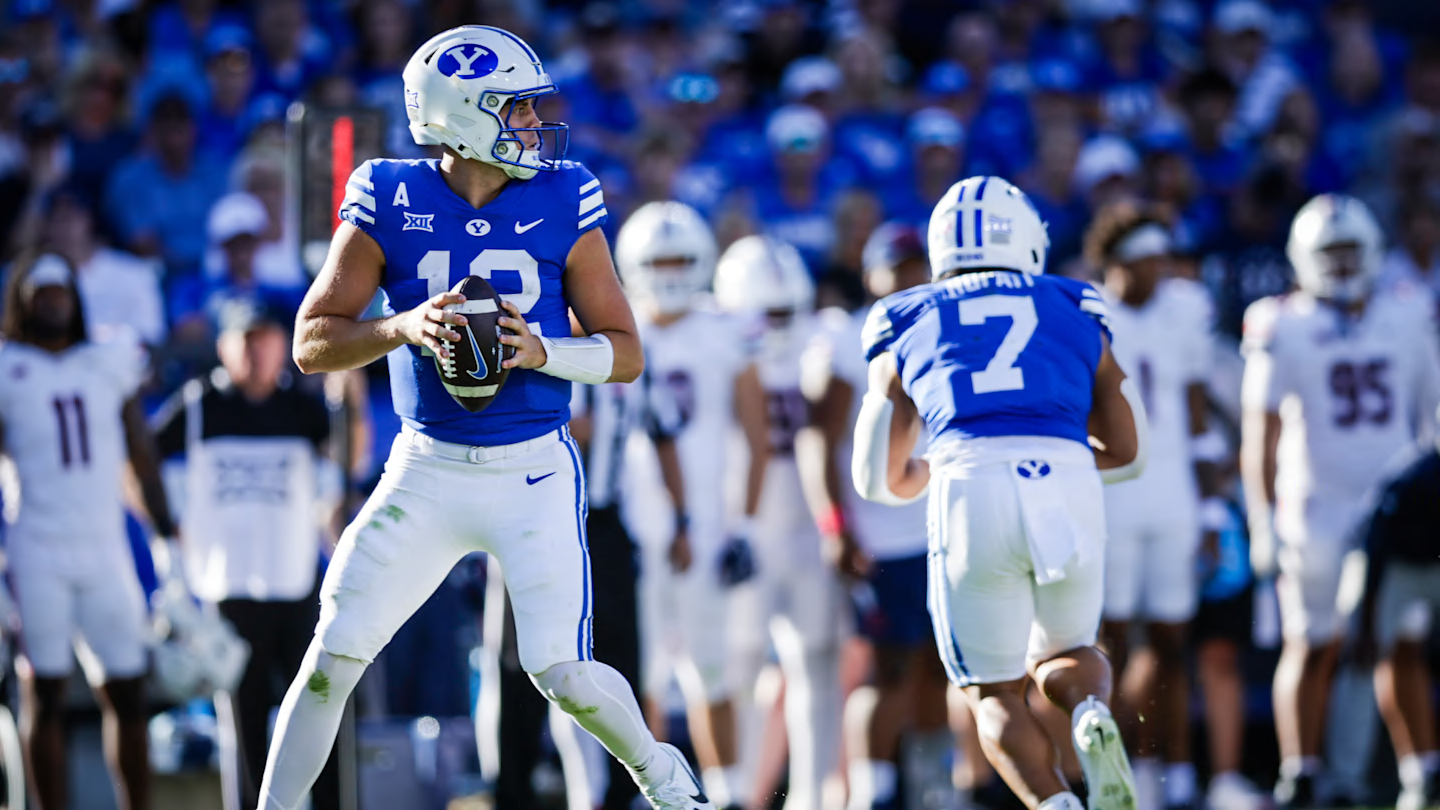
BYU quarterback Jake Retzlaff is withdrawing from school at BYU, he announced on social media. Retzlaff said he opted to withdraw from school “after a lot of prayer, reflection, and conversations with those I trust.”
“After a lot of prayer, reflection, and conversations with those I trust, I’ve made the difficult decision to withdraw from BYU and step away from the BYU football program,” Retzlaff said. “BYU has meant more to me than just football. It’s been a play of growth – spiritually, mentally, and physically. I’m grateful for every teammate, coach, staff member, and fan who’s supported me along the way. The relationships and memories I’ve made in Provo will always be a part of me. That said, I’m excited to turn the page and embrace the next chapter. My journey is far from over – and I’m more motivated than ever to keep chasing my goals.
Retzlaff was facing a suspension for breaking the school’s honor code. Rather than wait out the suspension, Retzlaff opted to finish his college career elsewhere.
BYU athletics released a statment on the situation, saying, “We are grateful for the time Jake Retzlaff has spent at BYU. As he moves forward, BYU Athletics understands and respects Jake’s decision to withdraw from BYU, and we wish him all the best as he enters the next phase of his career.”
Perhaps most notably, Retzlaff will attempt to circumvent the transfer portal. He will “simply enroll at a new school” according to Pete Thamel of ESPN. In terms of where he plans to go next, Retzlaff has not announced his plans.
Sources: Quarterback Jake Retzlaff is withdrawing from school at BYU. He still plans on transferring and is expected to take a transfer path that does not involve the NCAA Transfer portal. He plans to simply enroll at a new school. pic.twitter.com/pEsKXHXgsH
— Pete Thamel (@PeteThamel) July 11, 2025
As for BYU, the Cougars have moved on from Retzlaff and are already planning on a quarterback battle. Returning quarterbacks McCae Hillstead and Treyson Bourguet will battle for the starting spot against incoming true freshman Bear Bachmeier. The winner of the quarterback battle has a chance to be the BYU starting quarterback for the next 2-4 years.
Jake Retzlaff’s production, at least on paper, can probably be replicated by one of the three quarterbacks. In two years at BYU, he threw for 3,595 yards, 23 touchdowns and 15 interceptions while completing 56% of his passes.
What BYU will miss most about Retzlaff is his experience. Retzlaff was positioned to potentially take another step forward in 2025 with another season under his belt. Instead, BYU will turn to a quarterback that will be taking his first snaps at BYU.
NIL
Kentucky football, men’s basketball student ticket prices increasing significantly
The revenue-sharing era of college sports is upon us, and with it come new realities. Last week, the University of Kentucky announced new student ticket prices for football and men’s basketball for the 2025-26 season. They are substantially higher than last season. Student football season passes now cost $145, a 61% increase from a year […]

The revenue-sharing era of college sports is upon us, and with it come new realities. Last week, the University of Kentucky announced new student ticket prices for football and men’s basketball for the 2025-26 season. They are substantially higher than last season.
Student football season passes now cost $145, a 61% increase from a year ago. Men’s basketball season passes are $345, a 72.5% increase from last season. Football and men’s basketball single-game tickets will now cost $15-$40, up from $11-$20 last year. A decade ago, student tickets for men’s basketball games cost only $5. The times, they are a-changin’.
UK Student Football and Men’s Basketball Season Ticket Prices
- Football Season Pass
- 2025: $145
- 2024: $90
- 61% increase
- Men’s Basketball Season Pass
- 2025-26: $345
- 2024-25: $200
- 72.5% increase
- Football and Men’s Basketball single-game student tickets
- 2025-26: $15-$40
- 2024-25: $11-$20
- 36% – 100% increase
This move comes a week after Kentucky announced it will phase out employee and faculty ticket discounts, and require full-price tickets for children, regardless of age; previously, Kentucky charged a $10 fee for children to sit in the laps of their parents for football and men’s basketball games. UK said the changes are a result of the financial realities of the House Settlement, inflation, and other rising costs, which are expected to add $20–$30 million annually to UK Athletics’ budget. One positive change: no more hidden fees. Ticket prices will include all fees up front.
“UK Athletics remains committed to providing a variety of ticket options and maintaining a great home advantage, while adjusting to market forces and the revenue growth required for our programs to strive toward championships.
“Student ticket pricing for the 2025 season has been updated to better align with national peers; however, no student fees will be directed toward UK Athletics. Student athletics fees were phased out in 2018, making the UK one of a small number of institutions in the country with no student fees directed toward intercollegiate athletics.”
No one likes it when prices go up, but this is just an unfortunate reality of this new era of college sports.
-

 Technology2 weeks ago
Technology2 weeks agoPet fitness and wellness trends for a healthier and happier dog
-

 College Sports2 weeks ago
College Sports2 weeks agoWAC to Rebrand to UAC, Add Five New Members in 2026
-

 Motorsports2 weeks ago
Motorsports2 weeks agoWhy Cosmetics are Making Up for Lost Time in Women’s Sports
-

 College Sports3 weeks ago
College Sports3 weeks agoAlabama Basketball
-

 Professional Sports3 weeks ago
Professional Sports3 weeks agoFrancis Ngannou sends Dana White a message following Jon Jones' shock UFC retirement
-

 College Sports2 weeks ago
College Sports2 weeks agoA new era of Dickinson hockey begins behind the bench – The Dickinson Press
-

 Health2 weeks ago
Health2 weeks agoFlorida assault survivor shares hope for change with new mental health law
-
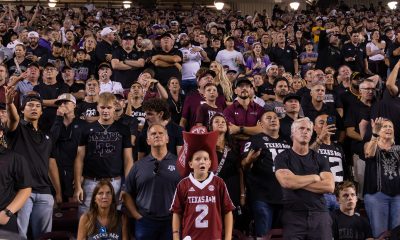
 Sports3 weeks ago
Sports3 weeks agoSEC Conference imposing a fine will create the opposite effect.
-

 Motorsports2 weeks ago
Motorsports2 weeks agoNASCAR This Week – Patriot Publishing LLC
-
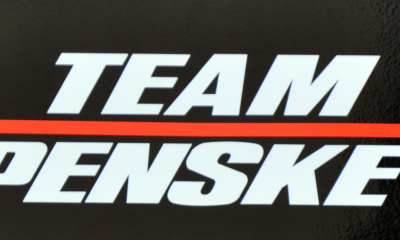
 Motorsports1 week ago
Motorsports1 week agoTeam Penske names new leadership















 BREAKING NEWS
BREAKING NEWS 














